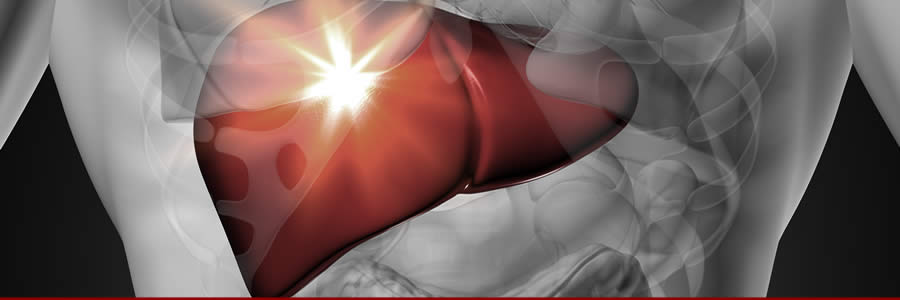The liver is the human body’s biggest internal organ and one of the most important. Among its hundreds of functions, the liver removes toxic materials from the blood, helps blood clots to form, stores vitamins, gets rid of red blood cells that are no longer healthy and synthesizes hormones.
This organ also produces bile, a substance that aids in digestion once the food gets into intestines, and is one of the chief mechanisms of carrying toxins out of the liver (one of the reasons constipation can be so detrimental even if your bile production is OK!). The gallbladder can store a portion of that bile until it is needed for various functions (we had a terrific podcast all about the gall bladder and digestion last year). After a person has something to eat, this fluid will go into the small intestine and break down fatty compounds known as lipids.
Unfortunately in our sickened, modern state, liver problems are fairly common, and one of them will directly interfere with the production of bile. This is called biliary stasis.
What Is Biliary Stasis?
Biliary stasis is a medical condition in which the flow of bile is backed up or the production of bile is suppressed within the liver itself. Bile doesn’t flow into the small intestine, and consequently, this crucial fluid in unavailable, or available in insufficient amounts to properly digest even healthy foods.
The bile might be physically blocked by a gallstone, a tumor, stomach swelling or something else physically obstructing the bile ducts in some manner. Other possible causes include medications such as certain birth control pills and medical disorders like cystic fibrosis and hepatitis. Pregnant women sometimes experience this problem, too, especially during the third trimester.
Symptoms of biliary stasis include jaundiced skin, pale stools, darkened urine, and severe itching of the skin.
Liver Stress
In some cases, biliary stasis is a symptom of a larger problem: liver stress or damage.
Many factors can place stress on the liver, from anxiety, tobacco use, concentrated levels of artificial ingredients in foods, concentrated levels of pesticides, an excess of alcohol consumption, and even mercury exposure. But far and away, a diet that lacks certain nutrients, protein in particular, is shown to be a root cause of many liver issues. Even medications can be toxic for the liver, including antibiotics and chemotherapy drugs.
What’s more, many of these materials are all but unavoidable. They’re in the air, and they’re inside many of the foods we eat, beverages we drink and commercial products we come into contact with every day.
Whenever there’s too much toxicity in the bloodstream, the liver can become overtaxed. As a result, harm to the liver can occur, and it can bring about a wide range of distressing symptoms. They include fatigue, jaundice, stomach and upper back pain, dark urine, extreme nausea, bloating, fever and vomiting. If you experience any of these issues, you obviously have a very serious issue on your hands.
Nutrition and the Liver
Some forms of liver damage are irreversible. If permanent impairment hasn’t yet occurred, though, you should be able to strengthen your liver by reducing your intake of toxins like sugar and alcohol. Think of alcohol as sugar that our brains can metabolize. In the gut and in the liver, the damage wrought by candy bars and vodka shots tends to look very similar. Cutting way back on these two types of sugar will make or break any other treatment plan you might be on.
The good news is you can also improve your liver’s functioning and bile production by regularly eating large quantities of certain critical foods.
Lemons and avocados can aid the liver in getting rid of noxious substances (although we disagree with Grapefruit, in this article – 6oz will shut down detox!), and leafy green vegetables like spinach black radish and beet roots can help to protect this organ. More importantly cruciferous vegetables such as broccoli, brussel sprouts, cauliflower, and kale aid in the detoxification of the liver.
Meanwhile, artichokes and other foods that have a bitter taste can stimulate bile production. When you bite or sip something that’s bitter, taste receptors on your tongue tell your gallbladder to let go of its bile. Thus, your liver is prompted to make more bile to renew the supply.
In addition, celery, green tea, horseradish, Spanish black radish, limes, whole grains and walnuts all seem to be capable of increasing bile production or nourishing the liver directly.
These foods that we’ve mentioned need to become a routine to consistently feed your liver and enhance your bile production. Our patients have access to a specific biliary stasis protocol of concentrated whole food supplements, when it becomes a challenge adding so many different foods into the diet on a regular basis.
In the end, your liver works hard for you all day long. By nourishing it properly via real food, or even concentrated whole food supplements and watching out for symptoms of liver problems, this vital organ will be more likely to function properly for a long time to come.

